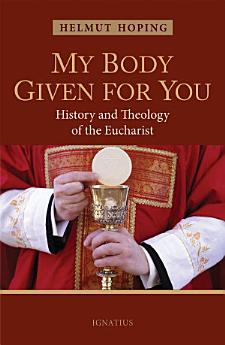My Body Given for You: History and Theology of the Eucharist
About this ebook
The Church celebrates the Eucharist as a memorial of the death and Resurrection of Jesus Christ. The memorial of the Eucharist is more than a remembrance of the Last Supper of Jesus with his disciples. In the Eucharist the sacrifice of our redemption becomes present sacramentally.
In the past, dogmatic theology has treated the meaning of the Eucharist while disregarding the form of its liturgical celebration, whereas liturgical studies have been content with the latter. Yet the two cannot be separated, however, any more than liturgy and dogma or pastoral practice and doctrine can. For the Church’s liturgy is not about something external to Christian revelation, but rather about "revelation accepted in faith and prayer" (Joseph Ratzinger).
In this work Helmut Hoping combines the approaches of dogmatic theology and liturgy while examining the Eucharist from an historical and systematic perspective. The second German edition of this major work, which this new English translation is taken from, was revised and expanded, adding a comparative analysis of the Second Eucharistic Prayer and a chapter on the theology of the words of institution.
About the author
Helmut Hoping is Professor of Dogmatics and Liturgy on the Theological Faculty of the University of Freiburg, Germany




